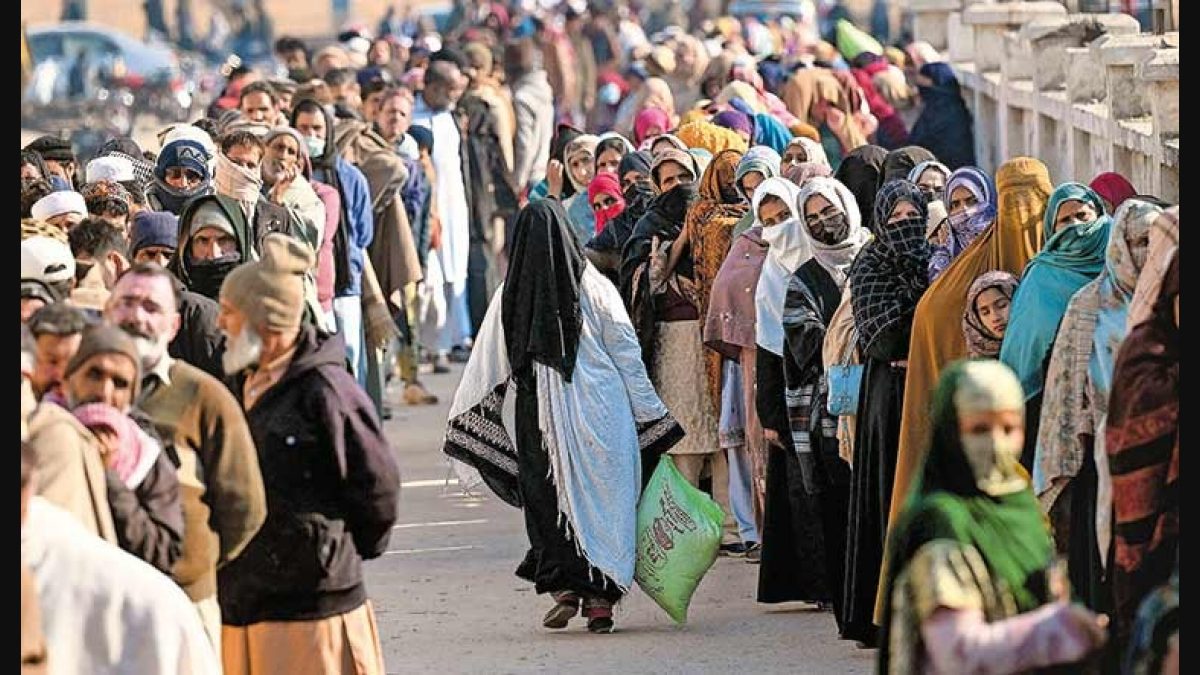In the year 2023, Pakistan found itself entangled in the grip of one of the most severe economic crises in its history. The nation, grappling with escalating poverty, inflation, and unemployment, witnessed a downturn that jeopardized the fundamental rights of millions of its citizens – from the right to health to the right to an adequate standard of living.
The roots of the crisis delved deep into economic policies influenced by external factors, particularly the directives of the International Monetary Fund (IMF). The IMF’s insistence on austerity measures and the removal of subsidies, without adequate compensatory measures, inflicted additional hardships on the already vulnerable low-income groups in Pakistan. The nation, already facing economic challenges, struggled to navigate the storm brought about by these stringent measures.
As the economic storm raged, the citizens bore the brunt of the crisis. Daily lives were disrupted, and the socio-economic fabric of the country strained under the weight of the financial downturn. The rising cost of living made it increasingly difficult for ordinary citizens to afford even the most basic necessities.
Adding to Pakistan’s woes, the country remained exceedingly vulnerable to the impacts of climate change. Rates of warming considerably above the global average made extreme climate events more frequent and intense. Natural disasters, exacerbated by environmental vulnerabilities, further strained the nation’s resources and capacity to respond.
The Human Rights Watch (HRW) brought these dire circumstances to light in its comprehensive ‘World Report 2024.’ The report, spanning over 740 pages, detailed the challenges faced by Pakistan and underscored the human rights implications of the economic crisis. It highlighted how the economic downturn impinged on rights such as health, food, and an adequate standard of living for the population.
In the realm of human rights, the report shed light on the challenges faced by journalists and civil society groups. Government threats and attacks on the media created an atmosphere of fear, leading to self-censorship among journalists. The government’s regulatory control over NGOs further restricted the functioning of international humanitarian and human rights groups.
In the midst of the economic turmoil, violence against women and girls emerged as a serious and pervasive issue. Cases of rape, murder, acid attacks, domestic violence, denial of education, sexual harassment at work, and child and forced marriages painted a grim picture of the challenges faced by women in Pakistan. “Honour killings,” a deeply entrenched issue, claimed the lives of around 1,000 women annually.
Education, too, suffered a significant setback, with over six million primary school-age children and 13 million secondary school-age children out of school. Girls, in particular, faced barriers such as the lack of schools, associated costs, child marriage, harmful child labour, and gender discrimination.
As Pakistan navigated these multifaceted challenges, the road to recovery seemed fraught with complexities. The nation grappled not only with economic turmoil but also with the broader implications for the rights and well-being of its people. The story of Pakistan in 2023 became a narrative of resilience, highlighting the urgent need for comprehensive strategies to address economic vulnerabilities and protect the fundamental rights of its citizens.


